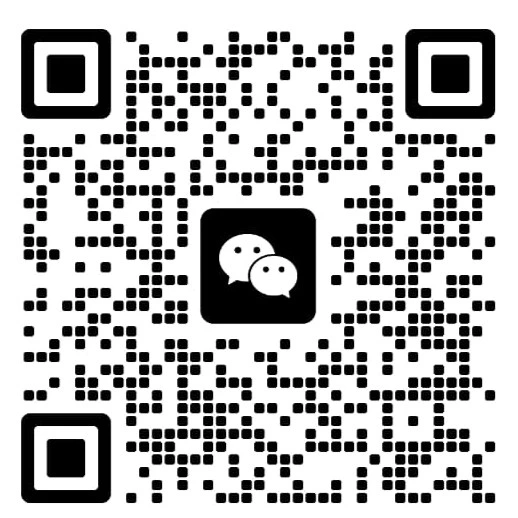Bagi banyak produsen alat kesehatan internasional, Indonesia seringkali muncul sebagai target ekspansi pasar logis berikutnya setelah mendapatkan persetujuan di Uni Eropa, AS, atau Tiongkok. Di atas kertas, peluangnya tampak jelas: permintaan yang terus meningkat akan solusi layanan kesehatan modern, jaringan rumah sakit yang luas, dan peningkatan belanja pemerintah untuk teknologi medis.
Namun, pendaftaran produk alat kesehatan Indonesia melibatkan proses Kementerian Kesehatan yang unik yang dapat mengejutkan pendatang baru.
Begitu perusahaan mulai menjajaki pasar di Indonesia, mereka segera menyadari bahwa persyaratan regulasi dapat menjadi hambatan terbesar bagi akses pasar. Berbeda dengan Tanda CE Eropa atau FDA AS persetujuan, Indonesia mengharuskan produsen untuk menjalani proses registrasi lokal dengan Kementerian Kesehatan (MoH).
Ini berarti perusahaan asing harus merestrukturisasi berkas mereka, menerjemahkan dokumen ke dalam Bahasa Indonesia, menunjuk perwakilan lokal, dan mematuhi persyaratan distribusi dan pengawasan pasca-pemasaran. Bagi banyak perusahaan, kerumitan ini mengakibatkan penundaan, biaya tambahan, dan frustrasi dengan birokrasi lokal.
Oleh karena itu, memahami registrasi produk alat kesehatan di Indonesia bukan hanya tentang kepatuhan—ini tentang memastikan masuknya pasar lebih lancar, mempertahankan kendali atas lisensi produk, dan memastikan keberhasilan jangka panjang di ekonomi terbesar di Asia Tenggara.
Peran Strategis Registrasi Produk
Bagi setiap perusahaan alat kesehatan, registrasi produk merupakan pintu gerbang menuju pasar perawatan kesehatan Indonesia.
- Tanpa Nomor Izin Edar (NIE) resmi yang dikeluarkan oleh Kementerian Kesehatan, alat kesehatan tidak dapat diimpor, didistribusikan, atau dijual secara legal.
- Registrasi produk juga menentukan apakah suatu perusahaan dapat berpartisipasi dalam e-Katalog LKPP, platform pengadaan nasional yang penting untuk tender pemerintah dan banyak digunakan untuk pengadaan rumah sakit.
- Dari perspektif bisnis, pendaftaran yang kuat tidak hanya memastikan kepatuhan tetapi juga meningkatkan kepercayaan di antara distributor lokal dan penyedia layanan kesehatan.
Singkatnya, pendaftaran produk yang sukses bukan hanya tentang mematuhi hukum—melainkan tentang membuka peluang bisnis nyata di Indonesia.
Harmonisasi ASEAN dan Adaptasi Indonesia
Indonesia merupakan anggota ASEAN Medical Device Directive (AMDD), yang bertujuan untuk menyelaraskan regulasi alat kesehatan di seluruh Asia Tenggara. Secara teori, penyelarasan ini akan memudahkan produsen yang telah memiliki Tanda CE atau persetujuan FDA untuk berekspansi ke kawasan ini.
Namun, Indonesia menerapkan versi adaptasinya sendiri dari standar internasional ini. Setiap perangkat tetap menjalani klasifikasi risiko dan tinjauan Kementerian Kesehatan Indonesia, terlepas dari apakah ada Tanda CE atau persetujuan FDA, untuk memastikan kepatuhan terhadap kriteria lokal:
- Persyaratan Lokalisasi: Semua dokumen, termasuk Petunjuk Penggunaan (IFU), harus diterjemahkan ke dalam Bahasa Indonesia.
- Legalisasi: Sertifikat seperti Sertifikat Penjualan Bebas (CFS) dan Cara Pembuatan yang Baik (GMP) harus dilegalisasi atau diapostille.
- Format Berkas Unik: Berkas-berkas teknis harus ditata ulang untuk mengikuti perkembangan Indonesia Sistem Regalkes templat, yang seringkali berbeda dari struktur MDR UE atau FDA.
Implikasinya jelas: persetujuan asing tidak serta merta menjamin penerimaan di Indonesia. Setiap produk tetap harus menjalani evaluasi dan adaptasi lokal agar memenuhi standar Kementerian Kesehatan.
Komponen Penting Registrasi Produk
Daripada berfokus pada daftar periksa teknis, akan lebih bermanfaat bagi produsen asing untuk memahami signifikansi bisnis dari setiap komponen pendaftaran.
| Komponen | Tujuan | Dampak Bisnis |
| Berkas Induk Perangkat (DMF) | Dokumentasi teknis terperinci tentang desain produk, keselamatan, dan kinerja | Menunjukkan kepatuhan dan kualitas, meningkatkan kepercayaan regulator dan distributor |
| Perwakilan Lokal | Penunjukan pemegang lisensi lokal atau distributor yang terdaftar di Kementerian Kesehatan | Penting untuk masuk pasar legal; pilihan mitra mempengaruhi fleksibilitas jangka panjang. Pemegang lisensi lokal harus menjadi distributor terdaftar di Kementerian Kesehatan dengan lisensi distribusi yang sah (IDAK) |
| Dokumen Hukum (LoA, CFS, GMP) | Bukti otorisasi dan keamanan produk | Keterlambatan legalisasi = peluncuran yang tertunda; terutama relevan bagi perusahaan Tiongkok dan AS. (Tips: Mulailah melegalkan dokumen sedini mungkin, karena prosedur kedutaan/apostille di negara-negara seperti AS atau Tiongkok bisa memakan waktu berminggu-minggu) |
| Pelabelan dalam Bahasa Indonesia | Memastikan kegunaan dan keselamatan pasien | Membangun kepercayaan dengan rumah sakit dan pengguna; label yang tidak sesuai berisiko ditolak atau ditarik kembali |
| Sertifikasi CDAKB (Distributor) | Praktik Distribusi yang Baik untuk Alat Kesehatan | Memastikan keandalan distributor; wajib untuk kepatuhan logistik dan penyimpanan. Praktik Distribusi yang Baik untuk Alat Kesehatan – memastikan keandalan distributor; per Juli 2024, Kementerian Kesehatan mewajibkan sertifikat CDAKB bagi setiap distributor sebelum mengeluarkan lisensi produk |
Secara keseluruhan, persyaratan ini memastikan bahwa alat kesehatan yang masuk ke Indonesia memenuhi standar kualitas internasional sekaligus disesuaikan dengan kebutuhan lokal. Bagi produsen, mengelola persyaratan ini secara efektif merupakan kunci untuk mempercepat akses pasar.
Praktik Terbaik untuk Registrasi Produk yang Sukses
1. Mulai Dokumentasi Lebih Awal
Legalisasi dan penerjemahan dokumen seperti LoA, CFS, dan GMP di kedutaan dapat memakan waktu berbulan-bulan. Keterlambatan pada tahap ini merupakan penyebab paling umum lambatnya persetujuan. Persiapan yang matang akan memastikan proses pengajuan ke sistem Regalkes berjalan lebih lancar.
2. Bundel Produk Secara Strategis
Indonesia memungkinkan strategi pengelompokan produk untuk mendaftarkan beberapa perangkat dalam kategori yang sama. Jika dilakukan dengan benar, hal ini dapat menghemat waktu dan biaya, terutama bagi perusahaan dengan portofolio produk habis pakai yang besar.
3. Gunakan Lisensi Netral
Alih-alih menghubungkan registrasi produk langsung ke satu distributor, banyak produsen global memilih pemegang lisensi netral seperti Registrasi Produk Indonesia. Pendekatan ini memastikan:
- Kepemilikan registrasi produk tetap berada di tangan produsen.
- Distributor dapat diubah tanpa kehilangan akses pasar.
- Kekuatan tawar yang lebih besar saat menegosiasikan kontrak distribusi.
4. Sejalan dengan Ekspektasi Pasar Lokal
Kepatuhan teknis saja tidak cukup. Klaim produk, pelabelan, dan bahkan visual pemasaran harus sesuai dengan ekspektasi budaya dan peraturan di Indonesia. Misalnya, perangkat dengan implikasi agama atau etika (seperti produk yang mengandung bahan turunan hewan) seringkali memerlukan deklarasi halal untuk meyakinkan pasar.
Faktanya, Indonesia sedang menerapkan sertifikasi Halal wajib secara bertahap untuk peralatan medis (misalnya peralatan Kelas A pada tahun 2026), jadi produsen harus mempersiapkan langkah kepatuhan ini.
5. Persiapan untuk Pengawasan Pasca Pasar
Bangun sistem untuk memantau kinerja produk, pelaporan kejadian buruk, dan kepatuhan terhadap persyaratan pengujian pasca-pemasaran di dalam negeri. Kementerian Kesehatan Indonesia semakin mengharapkan produsen untuk secara aktif mengawasi perangkat mereka pasca-persetujuan.
Bagaimana PRI Menyederhanakan Proses Pendaftaran Produk Alat Kesehatan Indonesia?
Pada Registrasi Produk Indonesia (PRI), kami menyediakan lebih dari sekadar kepatuhan—kami menyediakan strategi.
- Dukungan Pendaftaran Ujung ke Ujung: Dari klasifikasi risiko hingga persiapan File Master Perangkat dan penyerahan Regalkes.
- Pemegang Lisensi Netral: Menjaga kepemilikan produk di tangan Anda, tidak terikat pada satu distributor.
- Jaringan Mitra Strategis: Memastikan distributor lokal Anda memenuhi standar CDAKB.
- Panduan Berorientasi Bisnis: Membantu produsen tidak hanya lulus evaluasi MoH tetapi juga memposisikan diri untuk akses e-Katalog dan kemitraan distributor.
Dengan PRI, produsen asing dapat mengubah persyaratan regulasi yang rumit menjadi strategi masuk yang lancar dan digerakkan oleh bisnis.
Kesimpulan
Registrasi produk alat kesehatan Indonesia lebih dari sekadar tugas administratif. Ini adalah pintu gerbang menuju masuk pasar, hubungan dengan distributor, dan kesuksesan jangka panjang di salah satu pasar layanan kesehatan paling menjanjikan di Asia.
Dengan memahami harmonisasi ASEAN, mengelola dokumentasi secara strategis, merencanakan pengawasan pasca-pasar, dan mengadopsi praktik terbaik seperti kepemilikan lisensi netral, produsen dari Eropa, China, dan Amerika Serikat dapat memasuki Indonesia dengan percaya diri.
Product Registration Indonesia mengkhususkan diri dalam menyederhanakan perjalanan registrasi produk. Hubungi kami hari ini untuk konsultasi gratis dan kendalikan strategi masuk pasar Anda di Indonesia.



